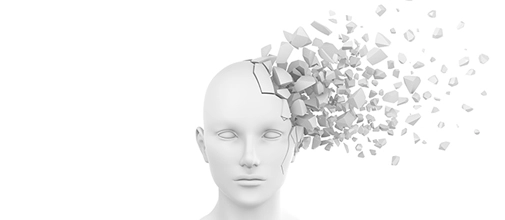No one passes through life without experiencing some degree of devastation. Each person suffers from seeing the world from an unfair perception and feeling helpless and exhausted in the presence of a cruel world at times. Psychological trauma is a type of damage to the mind that occurs as a result from one or several distressing events.
Trauma is the result of an overwhelming amount of stress that exceeds one’s ability to cope or integrate the emotions involved with that experience. Circumstances, eventually lead to serious, long-term negative consequences. Everything from relational and behavior problems to psychological and physical disorders. Psychological imbalances include: depression, anxiety, dissociation, and post traumatic stress disorder. It is these chemical and physiology changes, brought about by psychic trauma, that cause sudden and severe loss of psychological integrity and cohesiveness.
Potentially traumatic events include an objective experience such as witnessing a life-threatening even and a subjective experience such as feeling helpless and terrified that you’re life is in danger. Potentially traumatic events range from a single incident to repeated stress.
Attachment trauma includes physical, sexual and psychological abuse; & emotional and physical neglect related to relationships. Attachment trauma in childhood is especially problematic because of its influence on the course of psychological, social emotional and physiological development over one ’s entire lifetime.
Earlylife trauma affects selfesteem, social awareness, ability to learn and physical health. Secure and stable relationships are the foundation for healthy emotional development & subsequent safe and stable relationships. Traumarelated experiences particularly in childhood undermine attachments, attachments, creating a Karmic loop of cycles of further trauma and psychic distress.
The brain weighs about three pounds and is an electrically mass that looks like a walnut in your head. It is fed by thousands of blood vessels and sucks up 20 percent of the energy your body takes in. When we go through traumatic experiences,the
autonomic nervous system triggers the fight, flight response.
The amygdala is our emotions and decisions center it conspires with the hypothalamus, activating the pituitary and adrenal glands that release hormones that shut down nonessential systems that are not beneficial for our survival and increasing blood pressure, glucose production and adrenaline for energy, action, and focus that are necessary for our survival.
The Limbic System also known as our emotional center is what determines our automatic emotional responses to outside stimuli, while our feelings are our interpretations of those reactions. The Limbic System consists of the hypothalamus, thalamus, amygdala, and hippocampus. These systems together are known as the reptilian survival mind.
From a Spiritual perspective The Limbic System, unfortunately, is not immune to breakdowns. Psychological and emotional trauma over time strengthens the connection between the amygdala and hypothalamus keeping the mind in a constant state of survival. The reptilian brain is ancient, and it is the core of our soul through which memories, perceptions, and nervous system responses are triggered very closely to automatic responses and chemical messengers beyond one’s active control.
A person subjected to a lot of trauma can either develop extraordinary Empathy or become a narcissist. For many individuals growing up in trauma can establish specific survival skills.
One of the capabilities of surviving an abusive relationship and/or environment is to be able to anticipate moods and energies not picked up on by our primary senses which allows one to develop preternatural attachment to the caregiver. Out of necessity, the child begins to establish telepathic capacity, exquisite sensitivity to mirror neurons in the brain and sensitivity to electromagnetic energies emanating from the person. In short many develop Psychic abilities from Aligned with Intergenerational Trauma.
Effects of Emotional Trauma on the Brain during stressful events trigger the sympathetic nervous system to activate the fight-or-flight response. The stress hormone cortisol is released. Usually, when the stressor goes away, the parasympathetic nervous system responds and returns the body to normal. However, large amounts of stress releases excess cortisol into the body. Massive amount of cortisol has adverse effects on the brain, damaging the CA3 neurons in the hippocampus.
Impact of Trauma on Learning
The damage to the hippocampus impairs the individuals ability to form new memories, thus affecting the ability to learn. Verbal learning can be modified, in which the person has difficulty retaining information gathered from oral sources, compared to visual. Trauma can affect sustained and focused attention, through selective attention mirroring imbalances like Attention Deficit Disorder. The combination of the emotional problems from the trauma and the physiological damage most of the time impair’s performance in school and work.
There are so many disadvantages to holding trauma in our body. Most of the time
after a period it is done subconsciously, to deal with the thoughts and feelings. This doesn’t make the spiritual wound (trauma) go away, it just suppresses it, and over time it festers and accumulates energy and stress in the body. Trauma physically manifests in our bodies as pain, digestion disorders, fatigue, emotional disorders, frequent colds, lowered immune system, thyroid, reproduction, cardiovascular disorders and learning disabilities. And to think these are just a few!
Some ways we can tell we are holding trauma in our body.
1.We hold some level of consistent panic or anxiety in our abdomen, usually in the Heart, Solar Plexus, or Sacral Plexus areas.
2. We are hyper-reactive to our surroundings
3.We have localized (or generalized) aches and pains that are not caused by physical trauma (or linger long after the bodily injury has been resolved)
4.Our emotions are on the surface (because they’re either ready to release, or overflowing with an intensity that it’s hard to suppress) – especially anger, rage, or sorrow.
5.We get easily confused about what’s going on in our lives
If the trauma has gone on for a very long time, we may disassociate from ourselves, our Hearts, thus fostering lack of trust in our abilities to thrive or love as human beings
6. We are continually reliving the painful memories or feeling disempowered
Our thinking goes on overdrive
Proper functioning of our organs and endocrine system is necessary for good health and wellbeing. The endocrine glands each secrete hormones that regulate various functions throughout the body, and they require each other to be balanced for us to feel and be well. Each endocrine gland corresponds to a Chakra.
An example is in Chinese Medicine, the Lungs physically deal with respiratory disorders, such as bronchitis, emphysema, asthma, and shortness of breath. Emotionally, the Lungs deal with grief and letting go.
An overview is to provide general information about the relationship of these glands and the Seven Chakras.
When one Chakra is out of balance, it cannot generate the free flow of energy that is needed for equilibrium to be created. We then can become either physically, emotionally, mentally or spiritually out of balance (or usually a combination of all of these).
The purpose of this note is to expand on the Spine, Nervous System and Chakras information to help you relate them to where it may be beneficial for you to achieve alignment and find balance.
Being in balance provides the condition for us to achieve our best physical, emotional and mental health leading to our best spiritual situation for transcendence and enlightenment.
The 7 Physical Systems of the Body, The 7 Endocrine System and our Spiritual/Psychological Centers and how they affect our physical, mental and spiritual parts of self.
There are 7 (seven) systems of the body and 156 organs
1. Cardiovascular System
2. Gastric-intestinal System
3. Nervous System
4. Endocrine System
5. Urine-Genital System
6. Respiratory System
7.Osseous-Joints System
8 Neurotransmitters
1. Glutamate. Associated with learning and memory. Too much leads to impulsive and violent behavior
2. Gaba. Increases calmness and tranquility
3.Oxytocin. The love drug. Helping you to feel emotionally connected to people, animals, etc.
4.Dopamine. The feel-good chemical associated with pleasure. Too little leads to depression; too much point to addiction
5.Serotonin. The happy compound. Low levels lead to depression
6.Adenosine builds up during the day, so at night you can sleep.
7.Endorphins. The bodies painkillers. Low levels make you more sensitive to pain.
8.Noradrenaline. Heightens senses boost energy and elevates heart rate
When one of our endocrine glands is not functioning correctly, this affects all of the others, particularly the pituitary and hypothalamus.
The endocrine glands are the pineal, pituitary/hypothalamus, thyroid/parathyroid, thymus, pancreas, gonads (or ovaries), and adrenals. These glands govern and regulate the continuous and prolonged functions of growth and development, cellular metabolism, energy, our blood balance of nutrients, reproduction, body water and electrolytes and the body’s defenses against stress.
Each of the endocrine glands corresponds with one of the seven main Chakras transmitting and receiving energy to and from each of the endocrine glands.
All of the Chakras and glands are of equal importance within us as when one Chakra is out of balance it affects the energy flow creating a blockage and energy being in free circulation throughout the others.
Gland and Chakra Relationships
When we start to understand the basic working of our body, we can often peel away layers of things that may be within us, in reviewing the science between our Spinal Cord and our Endocrine System we can start to relate how we can increase our Shakti (energy) by focusing on each of the Chakras and their corresponding glands.
Crown Chakra – Pineal Gland – 7th Chakra
The pineal gland is considered one of the three master glands (along with the pituitary and hypothalamus glands). While the pituitary and hypothalamus glands are responsible for the regulation for ALL of the other endocrine glands, the pineal gland secretes the hormone melatonin. Melatonin is stimulated by Darkness (we create more in darkness) and inhibited by Light (daylight slows its production).
Spiritually, the pineal gland is associated with both the Crown and 3rd Eye Chakras. Some believe the Crown Chakra also acts like an antenna or satellite dish receiving cosmic energies from above.
.
Third Eye – Pituitary Gland and Hypothalamus – 6th Chakra
The pituitary gland is a pea-sized; double-lobed gland nestled in the sphenoid bone at the roof of the nose. The sphenoid bone is the only bone that connects to all the other bones of the, and its movement is responsible for “milking” the pituitary gland to secrete its hormones.
The pituitary gland is considered a master gland, (as is the pineal gland), and produces hormones that specifically affect all the other endocrine glands. It has been called the “Generals Headquarters.” The hypothalamus controls the pituitary function and can be considered as the “Central Processing Unit” for our entire hormonal system.
Throat Chakra – Thyroid Gland – 5th Chakra
The pituitary gland affects the thyroid gland by producing a hormone called thyroid- stimulating hormone (TSH), which prompts the thyroid to release more T4 and T3. These thyroid hormones help maintain healthy blood pressure, heart rate, digestion, muscle tone, and reproductive functions.
Heart Chakra – Thymus Gland – 4th Chakra
The thymus gland is located in the upper part of the chest, specifically in front of and above the heart behind the sternum. It produces the white blood cells that fight infections and destroy abnormal cells (T-lymphocytes (T-cells)).
The Thymus is considered the master gland of a healthy immune system.
Science has proven that T-cell count increases when we are feeling the emotions of love. It is directly affected by our ability to give and receive love.
It is often considered that our Heart Chakra acts as our “Centre” as it is powerfully affected by feeling and emotion. When we are feeling bitter, angry, or hateful towards another, or ourselves our ability to fight infection and disease is reduced A healthy thymus gland is directly associated to the development of compassion and kindness (towards both ourselves and each other).
Solar Plexus (Navel) Chakra – Pancreas Gland – 3rd Chakra
The pancreas gland is an elongated organ located diagonally across the back of the abdomen, slightly below and behind the stomach and in front of the spine.
The pancreas plays two roles having both digestive and hormonal functions. One part of the pancreas, the exocrine pancreas, secretes digestive enzymes. The other part of the pancreas, the endocrine pancreas, secretes hormones that regulate the level of glucose (sugar) in the blood. (The pancreas manages how we let ‘sweetness’ into ourselves).
The solar plexus is also sometimes referred to as the navel chakra and is often considered our center of “will.” It is where we most keenly experience our ego and self-esteem. It can also regulate how we let “sweetness” into our life.
Sacral Chakra – ovaries,testies – 2nd Chakra
The gonads are the ovaries in a woman and testes in a man. They are the primary source of our sex hormones, the chemicals that secrete the essences for new life via eggs and sperm. They respectively create our feminine and masculine characteristics. There is a direct connection between the ovaries and our adrenal glands (refer the first chakra). Adrenal fatigue can affect a woman’s menstrual cycle.
Root Chakra – Adrenal Glands – 1st Chakra
Our pair of adrenal glands also referred to as the supra-renal glands, are triangular-shaped glands located on top of each kidney. Our adrenal glands work hand-in-hand with the hypothalamus and pituitary gland.
The adrenal glands are made up of two parts. The outer portion is called the adrenal cortex, and the inner part is called the adrenal medulla.
The adrenal cortex produces hormones that regulate the body’s metabolism, the balance of salt, potassium, and water in the body, the immune system, and sexual function. It is also responsible for the production of cortisol, which regulates glucose levels and inflammation of tissue. Adrenal glands are responsible for our ‘flight or fight’ response.
Often, our body pain is relevant to what is happening in our lives. Neck pain and shoulder pain can usually indicate shouldering responsibilities and resentment towards doing so.
Our bodies are so wise, and they are always speaking to us. It is up to us to listen to them. That is a key to owning our wellness.
Laura Schwalm is a Master Psychic Healer who Specializes in Holistic and Spiritual Healing. To read about the services offered go to pureenergyhealer.com To read about Holistic and Spiritual workshops offered go to meetup.com/holistic-and-spiritual-transitions-in-st.-augustine/




